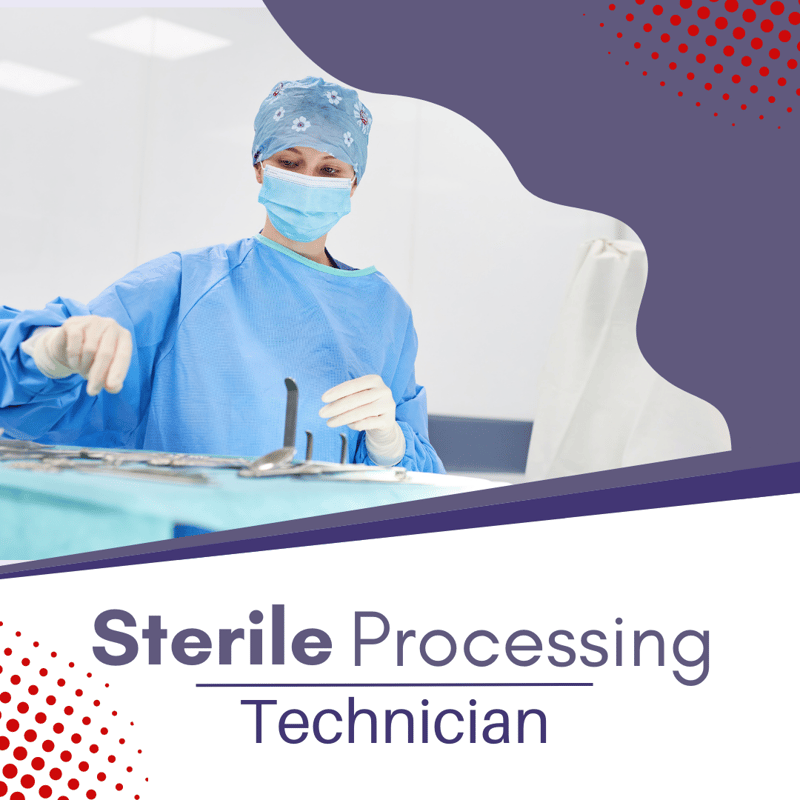What is a Sterile Processing Technician?

Ever wondered how healthcare professionals keep medical instruments safe and sanitized? Well, that’s where a Sterile Processing Technician's (SPT) role comes in! This blog post will teach you about SPTs and their importance.
Where do SPTs work?
SPTs work in different healthcare settings, primarily in environments where medical equipment requires sterilization. Some of the common workplaces for SPTs include:
-
Hospitals
-
Outpatient surgery centers
-
Clinics
-
Rehabilitation centers
-
Long-term care facilities
-
Ambulatory care centers
-
Diagnostic imaging centers
-
Research laboratories
-
Veterinary clinics
-
Dental clinic and offices
Healthcare professionals help hand in hand to ensure the safety and well-being of patients. Among these heroes are sterile processing technicians who play a vital role. They work with various healthcare workers, such as;
-
Surgeons
-
Nurses
-
Operating Room (OR) Staff
-
Infection Control Specialists
-
Central Service Staff
-
Dentists and Dental Hygienists
-
Laboratory Personnel
-
Veterinarians
Conclusion
Becoming an SPT contributes significantly to patient safety and infection prevention. You'll ensure that healthcare facilities maintain the highest standards of cleanliness and hygiene.
Pursuing this career offers a pathway to job stability, career growth, and a sense of fulfillment. As the demand for healthcare services continues to rise, you will have meaningful work and the chance to be an indispensable part of a thriving industry.
If you are ready to start a rewarding career in healthcare, take the first step by exploring your options for healthcare classes at Dreambound!

Winlynd Caballero is a member of Dreambound's Sales team. She helps in handling the company's finullcial transactions, generating reports, and school sales. Beyond her responsibilities in the realm of numbers and business, Winlynd finds herself deeply immersed in a world of art and music.



